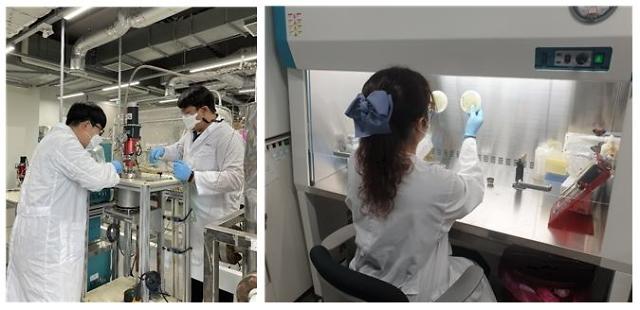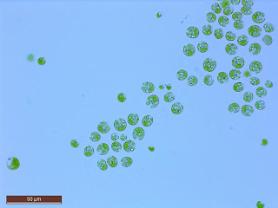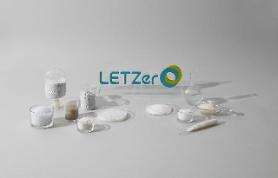
[Courtesy of KIER]
Bio-refinery technologies concentrate on the extraction of renewable materials for biofuel and bioplastic from biomass including wastes and byproducts produced in the agricultural industry. The alternate for petro-refinery technology has the potential to greatly reduce pollution through valorization, the recycling of composting waste materials.
4-hydroxyvaleric acid (4-HV), a precursor material for biofuel and bioplastic, cannot be extracted directly from biomass. 4-HV is created through the hydrogenation of Levulinic acid (LA) obtained from biomass. There is no naturally occurring substance that can chemoenzymatically hydrogenate LA to create 4-HV. Hydrogenation is a process that treats or combines a material with hydrogen. The process adds hydrogen to the molecule of an unsaturated organic compound.
The Korea Institute of Energy Research (KIER) said in a statement on October 14 that its research team has succeeded in the chemoenzymatic valorization of LA to produce 4-HV. The feedstock used during the converting process was an agricultural waste that can be commonly found at farms and other agricultural product manufacturing plants. Researchers said that the newly-found technique is the world's first chemoenzymatic method to hydrogenate LA.
"To the best of our knowledge, this is the first report describing the production of 4-HV from actual biomass, and the results might provide insights into the valorization of agricultural wastes," KIER said.
Because there is no naturally occurring substance that can hydrogenate LA, researchers focused on finding enzymes that can valorize acetoacetic acid that had a similar chemical structure to that of LA. KIER said that the newly-developed enzyme requires lower energy levels than the conventional catalyst-based valorization method that uses ruthenium, a rare metal, as a catalyst. Also, hydrogen was co-produced in the chemoenzymatic process as a byproduct.
"We think that this research for the enzyme-based bio-refinery technology will contribute to the realization of the future carbon-neutral society," KIER's head researcher Min Kyung-sun was quoted as saying.
Copyright ⓒ Aju Press All rights reserved.


![[K-Tech] Ground broken for South Koreas first renewable biofuel plant](https://image.ajunews.com/content/image/2025/08/04/20250804150029482020_278_163.jpg)

